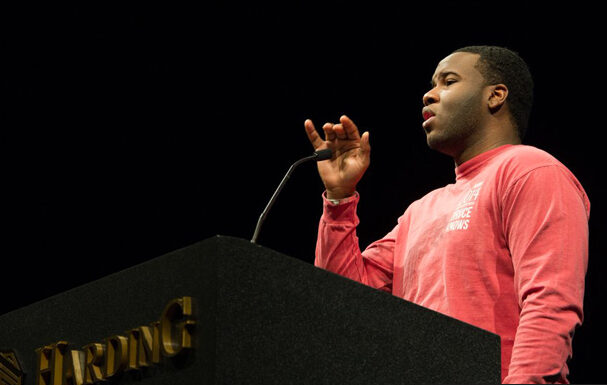Botham Jean, a black man shot and killed in his own apartment last week by a Dallas police officer, was laid to rest today. “Bo,” as friends called him, was a worship leader and youth pastor at Dallas West Church of Christ.
On September 6, the 26-year-old was killed by Amber Guyger, a white officer who says she entered Jean’s apartment thinking it was her own. Assuming Jean was an intruder, she fired at the unarmed man when he didn’t obey commands. Guyger, 30, who’s been on the city’s force for four years, has been charged with manslaughter.
Family and Friends Remember Botham Jean
Music and worship were important to Jean, a graduate of Harding University who worked at PricewaterhouseCooper. At Harding, a Christian college in Arkansas, Jean was in the Good News Singers, a group that often led school chapel services and traveled to other churches.
At a campus vigil, university president Bruce McLarty says the community gathered “to worship God the way Botham so often led us in doing.” McLarty recalled when Jean was once asked to lead chapel with a hymn he didn’t know. The St. Lucia native called his grandmother in that country and asked her to teach it to him over the phone.
“His faith was very strong,” says Jean’s father, Bertram. “We will miss our boy.”
Brandt Jean, 17, remembers his brother as a “down to earth” adviser. “I would do stupid stuff at times, and he would tell me what I needed to hear, even though it might hurt me, even though I might cry.”
Jessica Berry, daughter of the minister at Dallas West Church of Christ, says Jean showed her what worship is all about. “There wasn’t a song that he [sang] halfheartedly,” she tells CBN News. “He believed in connecting with God during worship.”
Berry adds that Jean stepped up to lead while maintaining a “sweet, humble spirit.” Now she’s determined to advocate for her friend. “This situation will not go away,” she says. “It will not become stale. Botham would not want that.”
Seeking Justice for Botham Jean
Jean’s mother, Allison Jean, also is determined to seek justice. “Whoever did it to him needs to pay—a heavy price,” she says. “He was in his sanctuary, in the place he called home.”
When she learned the officer was white, Allison Jean wondered if race factored into the shooting. “If it was a white man, would…[the officer have] reacted differently?” At a church vigil, Jean said her son “loved mankind.” He “never saw color, never saw race. Botham wanted all of us to unite.”
Allison Jean expressed hesitancy about judging Guyger but wants answers. “We are Christians. We forgive. But I need to look into her eyes and ask her why did she do that to my son. She took away my heart. My soul. He didn’t deserve to die. The explanation does not make sense.” About the shooting, Jean says, “Somebody has to be crazy not to realize they walked into the wrong apartment. He’s a bachelor. Things are different inside.”
The shooting, which has garnered national attention, is sparking protests in Dallas. Some people are upset that it took authorities three days to charge Guyger—and that the charge isn’t murder. “This entire situation smacks of preferential treatment,” Shannon Toye tweeted to Dallas Mayor Mike Rawlings. “There is no level playing field in America.”

















